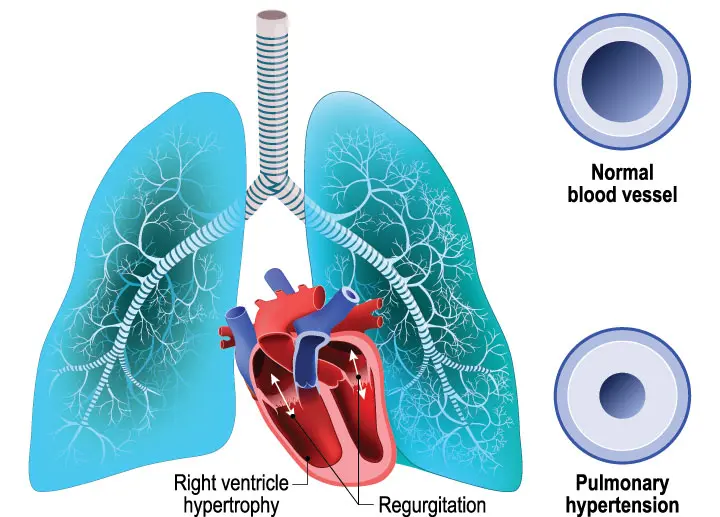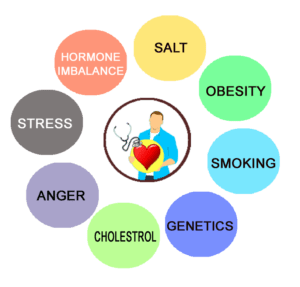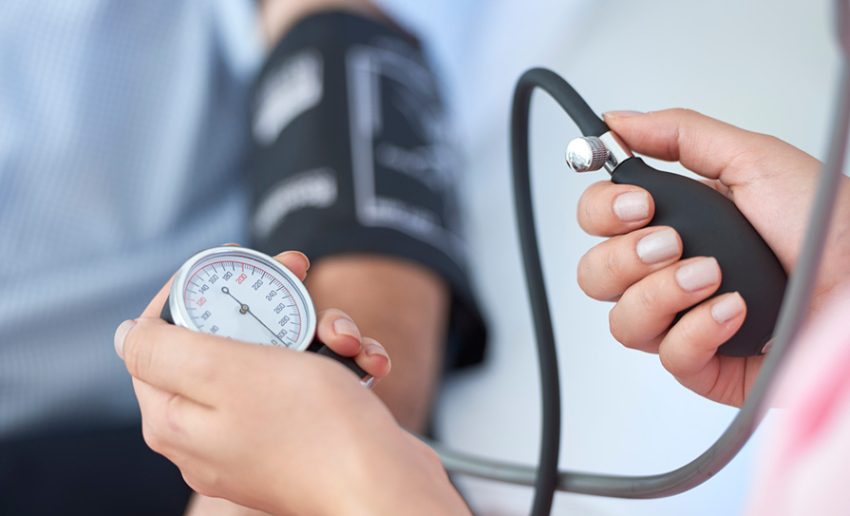Hypertension: Understanding, Causes, Risks, and Management

Hypertension, also known as high blood pressure, is a severe medical condition that remarkably increases the risk of heart disease, stroke, and other health problems. Often nicknamed the “silent killer” due to its typically without manifestations in nature, hypertension affects millions of people worldwide. This article provides an in-depth look at hypertension, including its causes, risk factors, complications, and management strategies.
Understanding Hypertension
Blood pressure is the force applied by circulating blood against the walls of the body’s arteries. It is measured in millimeters of mercury (mmHg) and recorded with two numbers: systolic pressure (the pressure during heartbeats) over diastolic pressure (the pressure between beats). Normal blood pressure is generally considered to be around 120/80 mmHg. Hypertension is diagnosed when these readings are consistently 140/90 mmHg or higher.
Types of Hypertension
- Primary (Essential) Hypertension: This is the most common type, accounting for about 90-95% of cases. It develops gradually over many years and has no recognizable cause, though it is often linked to genetic factors, aging, and lifestyle influences.
- Secondary Hypertension: This type is caused by an underlying condition and tends to appear suddenly. Common causes include kidney disease, hormonal disorders, certain medications, and sleep apnea.
Causes and Risk Factors

The precise cause of primary hypertension is not well understood, but several factors can contribute to its development:
- Genetic Factors: Hypertension often runs in families, suggesting a hereditary component.
- Age: The risk of hypertension increases with age, particularly after 45 years.
- Gender: Men are generally at a higher risk until about age 65, when the risk for women increases.
- Lifestyle Factors: Unhealthy habits such as poor diet, excessive salt intake, lack of physical activity, obesity, and smoking contribute significantly to hypertension.
- Chronic Conditions: Conditions like diabetes, high cholesterol, and kidney disease are closely linked to hypertension.
- Stress: Chronic stress can contribute to high blood pressure, although the exact mechanism is complex and multifaceted.
Risks and Complications
Unchecked hypertension can lead to severe health issues, many of which are life-threatening:
- Heart Disease: High blood pressure can cause the arteries to thicken and harden (atherosclerosis), leading to heart attacks, heart failure, and other cardiovascular conditions.
- Stroke: Hypertension can lead to the bursting or blockage of blood vessels in the brain, resulting in a stroke.
- Kidney Damage: The kidneys rely on healthy blood vessels to filter waste from the blood. Hypertension can damage these vessels, leading to kidney disease or failure.
- Vision Loss: High blood pressure can damage the delicate blood vessels in the eyes, causing retinopathy and potentially leading to blindness.
- Aneurysm: Increased pressure can cause blood vessels to weaken and bulge, forming an aneurysm, which can rupture and cause life-threatening bleeding.
- Cognitive Decline: Long-term hypertension can affect brain function and contribute to dementia and cognitive impairment.
Diagnosis
Diagnosing hypertension typically involves multiple blood pressure readings over a period of time to confirm consistently high levels. Healthcare providers may also perform:
- Physical Examination: To check for signs of damage caused by high blood pressure.
- Blood and Urine Tests: To identify underlying conditions that may cause secondary hypertension.
- Electrocardiogram (ECG): To assess heart function.
- Echocardiogram: To check for changes in the heart, such as thickening of the heart muscle.
- Ambulatory Monitoring: A device worn for 24 hours to monitor blood pressure throughout the day and night.
Management and Treatment
Managing hypertension involves a combination of lifestyle changes and, when necessary, medication. Here are some effective strategies:
Lifestyle Changes
- Healthy Diet: Adopting a diet rich in fruits, vegetables, whole grains, and lean proteins, and low in saturated fats, cholesterol, and sodium can help lower blood pressure. The DASH (Dietary Approaches to Stop Hypertension) diet is often recommended.
- Regular Exercise: Engaging in regular physical activity, such as 150 minutes of moderate-intensity exercise per week, can significantly reduce blood pressure.
- Weight Management: Maintaining a healthy weight or losing weight if overweight can have a profound impact on blood pressure levels.
- Limiting Alcohol: Reducing alcohol intake to moderate levels (up to one drink per day for women and two for men) can help manage hypertension.
- Quitting Smoking: Smoking cessation is crucial as it directly contributes to hypertension and cardiovascular risk.
- Stress Management: Techniques such as meditation, deep breathing, yoga, and adequate sleep can help manage stress and lower blood pressure.
Medications
For many people, lifestyle changes alone are not sufficient, and medications are necessary to control hypertension. Common classes of antihypertensive drugs include:
- Diuretics: Help the kidneys remove excess sodium and water, reducing blood volume.
- ACE Inhibitors: Prevent the formation of a hormone that narrows blood vessels.
- Angiotensin II Receptor Blockers (ARBs): Block the action of the hormone responsible for narrowing blood vessels.
- Calcium Channel Blockers: Help relax blood vessel muscles and reduce heart rate.
- Beta-Blockers: Reduce the heart rate and the heart’s output of blood.
- Renin Inhibitors: Slow down the production of renin, an enzyme that starts a chain of chemical steps that increase blood pressure.
Prevention
Preventing hypertension involves taking on many of the same lifestyle changes recommended for managing the condition. These include maintaining a healthy diet, engaging in regular physical activity, avoiding excessive alcohol and tobacco use, managing stress, and maintaining a healthy weight. Regular monitoring of blood pressure is also important, especially for individuals with risk factors or a family history of hypertension.
Hypertension is a pervasive and potentially dangerous condition that requires careful management and awareness. By understanding its causes, risks, and the effective strategies for prevention and treatment, individuals can significantly reduce their risk of complications and lead healthier lives. Regular check-ups and a proactive approach to lifestyle changes are key to managing blood pressure and maintaining overall well-being. Click here to get more information
